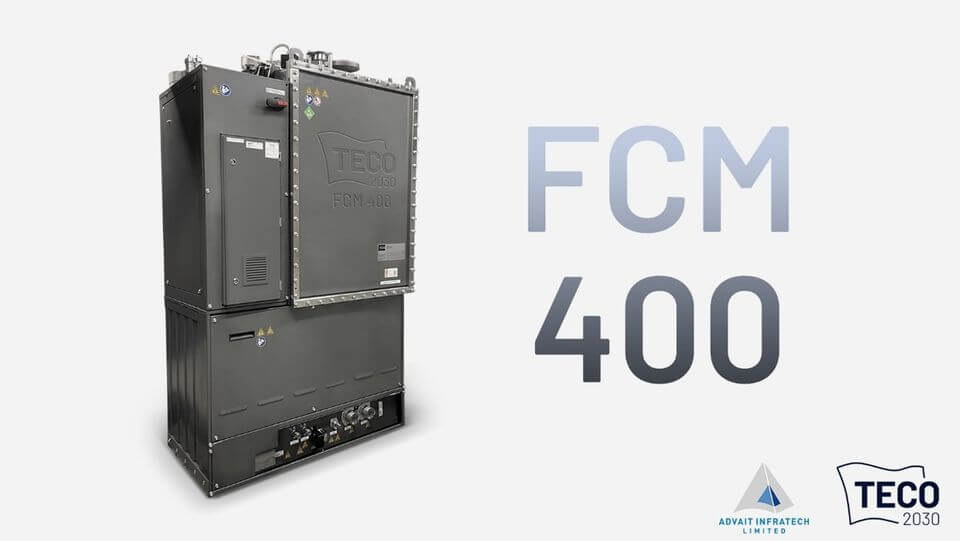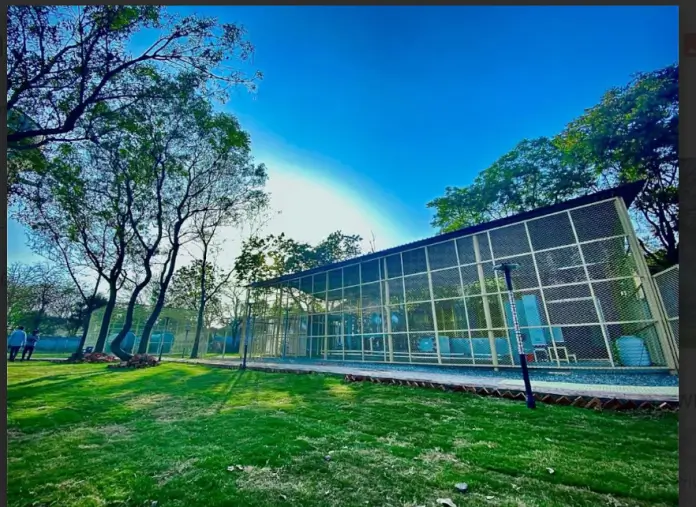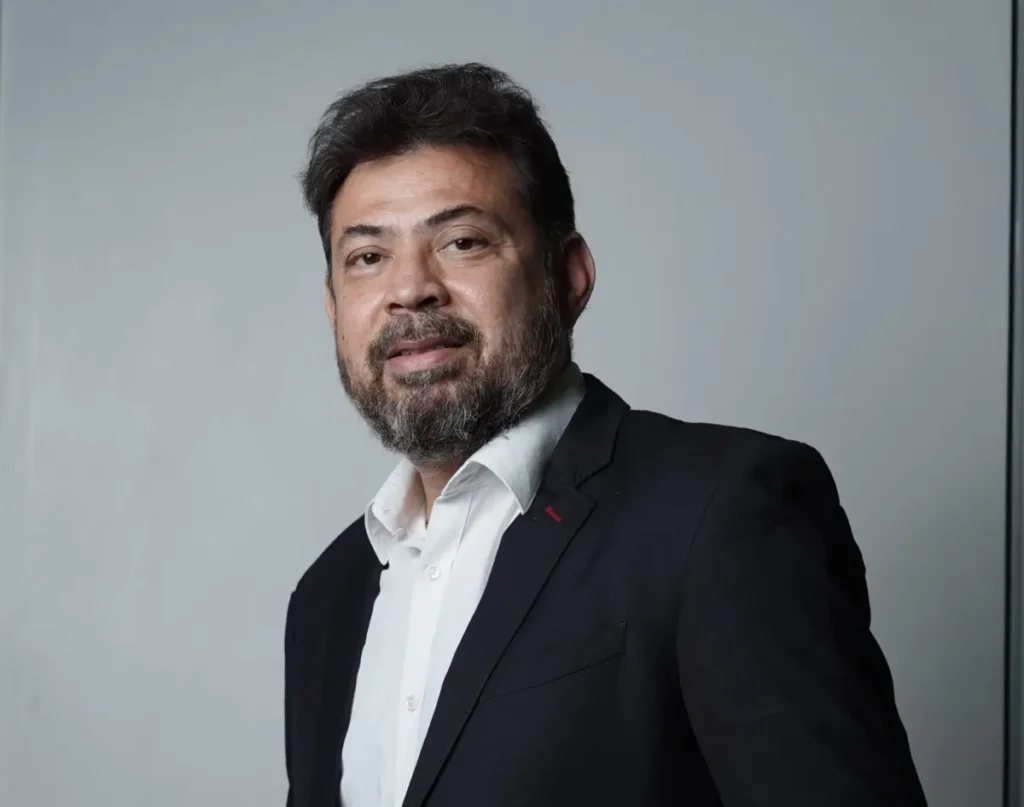Advait Infratech Limited (Advait) partners up with a Norway-based fuel cell company TECO 2035

(Norway and India, April 16th 2024) TECO 2030 (OSE: TECO, OTC: TECFF, ISIN: NO0010887516) and Advait Infratech Limited (BOM: 543230) invests and partners up for fuel cell expansion in India and SAARC countries. Simultaneously, Advait injects approx. NOK 43 million (USD 4 million) through a private placement in TECO 2030 ASA at a price of NOK 2.00 per share. Following the private placement, the parties will establish a joint venture in India, were Advait and TECO 2030 will respectively hold 51% and 49% of the outstanding shares. The joint venture will receive the exclusive rights to develop, manufacture and commercialize TECO 2030 Fuel Cell Technology to the Indian market and SAARC countries. The joint venture will act as a collaboration between the parties towards creating and maintaining local development, production, and commercialization capabilities with presence in India.n Mr. Shalin Sheth, Managing Director and Founder of Advait Infratech, commented on the significance of this collaboration, saying, “Our partnership with TECO 2030 is a landmark alliance that will drive advancements in the renewable energy sector. This collaboration underscores our dedication to innovation and excellence, while also enhancing the Indo-Norway ties in renewable energy. Leveraging TECO 2030’s manufacturing expertise, we are committed to delivering cutting-edge, reliable, and sustainable solutions to our customers.”n “I am very excited to announce this strategic investment by Advait, and announce our collaboration plans for the Indian market. Advait represents a strong partner for us in India, specially with their expertise in the power and green energy markets. I am confident that our plans will create shareholder value” says an enthusiastic Tore Enger, Group CEO, TECO 2030.
TECO 2030 raises NOK 43 million and partners up with Advait Infratech Limited (Advait) in India

Norwegian clean-tech company TECO 2030 and Indian firm Advait Infratech Limited have partnered to expand fuel cell technology in India. TECO 2030 produces zero-emission hydrogen fuel cell stacks and modules for maritime and heavy industries, and Advait Infratech focuses on power infrastructure and green energy markets. Following the private placement, the parties will establish a joint venture in India, were Advait and TECO 2030 will respectively hold 51% and 49% of the outstanding shares. The joint venture will receive the exclusive rights to develop, manufacture and commercialize TECO 2030 Fuel Cell Technology to the Indian market and SAARC countries. The joint venture will act as a collaboration between the parties towards creating and maintaining local development, production, and commercialization capabilities with presence in India. Mr. Shalin Sheth, Managing Director and Founder of Advait Infratech, commented on the significance of this collaboration, saying, “Our partnership with TECO 2030 is a landmark alliance that will drive advancements in the renewable energy sector. This collaboration underscores our dedication to innovation and excellence, while also enhancing the Indo-Norway ties in renewable energy. Leveraging TECO 2030’s manufacturing expertise, we are committed to delivering cutting-edge, reliable, and sustainable solutions to our customers.” “I am very excited to announce this strategic investment by Advait, and announce our collaboration plans for the Indian market. Advait represents a strong partner for us in India, specially with their expertise in the power and green energy markets. I am confident that our plans will create shareholder value” says an enthusiastic Tore Enger, Group CEO, TECO 2030.
Advait Infratech Limited Successfully Executes India’s Pioneering Green Hydrogen Microgrid System at THDCIL, Rishikesh

Advait Infratech Limited has successfully completed the execution of all terms and conditions outlined in the tender agreement. The project scope, which encompassed Design, Engineering, Supply, Installation, Testing, Commissioning, and Operation & Maintenance for a 300kW Capacity Electrolyser & 70kW Capacity fuel cell based Micro-grid system with Hydrogen Production at THDCIL Office Complex in Rishikesh, Uttarakhand, has been meticulously fulfilled. Furthermore, Advait has also reported the successful conduct of a PGTR for 110-hour trial for the Green Hydrogen-based Micro-grid Project at THDCIL, Rishikesh. The project, initiated on January 5, 2023, has been executed with remarkable efficiency, highlighting Advait Infratech’s unwavering commitment to delivering cutting-edge technology solutions. The inauguration of this hydrogen plant on January 26, 2024, stands as a historic moment not only for Advait but also for the region and the renewable energy industry at large. The Board released a statement saying, “The successful completion of the Micro-grid System project at THDCIL Office Complex is a testament to Advait Infratech Limited’s commitment to delivering high-quality, sustainable solutions in the field of green hydrogen space. We are happy to have played a role in advancing India’s green energy agenda and look forward to continued collaboration in driving positive change”. Key Features of the Hydrogen Plant Advait’s pioneering microgrid system incorporates a 300 kWh Alkaline Electrolyser, capable of generating 50 kg of high-purity hydrogen during daylight hours. This hydrogen is stored in a state-of-the-art 24m3 storage tank, pressurized at 30 bar, ensuring its availability when needed. During nighttime, the stored hydrogen seamlessly powers a 70 kWh fuel cell, feeding energy into THDC’s grid and contributing to a more stable and sustainable power supply. Advait Infratech Limited takes immense pride in being at the forefront of India’s green hydrogen revolution. This project exemplifies the company’s dedication to environmental sustainability and its determination to reduce its carbon footprint. The utilisation of hydrogen-based energy systems is seen as the way forward in mitigating climate change and achieving a cleaner environment. Earlier this year, Solar Energy Corporation of India’s (SECI) announced winners to set up 1.5 GW of electrolyser manufacturing capacities across India under the Strategic Interventions for Green Hydrogen Transition (SIGHT) program. Advait Infratech won 100 MW with an incentive allocation of ₹1.48 billion (~$17.87 million). Additionally, Advait Infratech has also signed a significant MoU with GuoFu Hydrogen Energy Equipment Co., Ltd. (“GuoFu”), a distinguished Chinese manufacturer specialising in hydrogen energy equipment and related products. Carbon Technology Energy (CTE), a German company to create a prototype fuel cell, emphasising the optimization of carbon-based plate stack distribution.
Advait partners Norway’s TECO 2030 to produce fuel cells in India

Norwegian clean-tech company TECO 2030 and Indian firm Advait Infratech Limited have partnered to expand fuel cell technology in India. TECO 2030 produces zero-emission hydrogen fuel cell stacks and modules for maritime and heavy industries, and Advait Infratech focuses on power infrastructure and green energy markets. The two companies formalized the partnership through a Memorandum of Understanding (MOU). Under this agreement, AIL and TECO 2030 intend to establish a joint venture in India, with AlL owning the majority shareholding. The joint venture will develop, manufacture, and commercialise TECO 2030 fuel cell technology within the SAARC (South Asian Association for Regional Cooperation) member countries (Afghanistan, Bangladesh, Bhutan, India, Maldives, Nepal, Pakistan, and Sri Lanka). Earlier this year, Advait Infratech won 100 MW with an incentive allocation of INR 1.48 billion ($17.87 million) in Solar Energy Corp. of India’s (SECI) auction for setting up 1.5 GW of electrolyser manufacturing capacities across India. The capacity was tendered under the Strategic Interventions for Green Hydrogen Transition (SIGHT) program. Advait Infratech has also signed an MoU with GuoFu Hydrogen Energy Equipment, a Chinese manufacturer specialising in hydrogen energy equipment and related products. It has also tied up with Carbon Technology Energy (CTE), a German company, to create a prototype fuel cell. The partnership will leverage CTE’s extensive expertise in developing carbon-based plate solutions and AIL’s skills in detailed designs and specifications for fuel cells and electrolysers with a focus on maximizing the distribution of carbon-based plate stacks.
Advait Infratech Shares Hit 5% Upper Circuit on Signing MoU for Fuel Cell Technology

Shares of Advait Infratech Limited hit a 5% upper Circuit on 12 April after the company announced signing an MoU for fuel cell technology. In its regulatory filing, the company said that they have signed a Memorandum of Understanding (MoU) with TECO 2030, a Norwegian-based clean-tech Company, to develop and commercialize fuel cell technology. As a part of this signed agreement, the company and TECO 2030 will establish a joint venture in India for the development, manufacturing, and commercialization of the fuel cell technology of TECO 2030 within the country as well as the SAARC market. As of 31 December 2023, the company’s total order book stands at around Rs 173 crore, from which the majority contribution is by the ‘EPC’ orders, followed by ‘Manufacturing’ orders, orders from ‘overseas’, and ‘Green Hydrogen’ orders. In a period of six months, the shares of the company have given a return of over 240% making it a multibagger stock. The company is an Indian-based company that supplies tools and equipment for the construction of transmission lines. At 3:30 pm, the shares of Advait Infratech closed 5% higher at Rs 1,350.80 on NSE.
Advait Infratech Ltd announces collaboration with TECO 2030

Advait Infratech Ltd has announced a significant collaboration between TECO 2030, a Norwegian-based clean-tech Company developing zero-emission technology for the maritime and heavy industry specialization in developing PEM hydrogen fuel cell stacks and PEM hydrogen fuel cell modules, and Advait Infratech Limited (AIL), which has been formalized through a Memorandum of Understanding (MOU). This Memorandum of Understanding (MoU) stands on the intent of investment from AIL into TECO 2030 and partnering up for the expansion of fuel cell technology in India as well as in SAARC Countries. Under this agreement, AIL and TECO 2030 intend to establish a joint venture in India, where AlL intends to hold the majority shareholding. The joint venture will be exclusively authorized to develop, manufacture, and commercialize TECO 2030 Fuel Cell Technology within the Indian as well as SAARC market. This joint venture signifies a significant collaboration between AlLand TECO 2030 towards creating and maintaining local development, production, and commercialization capabilities with a strong presence in India. Through this venture, we aim to leverage our respective strengths to contribute to the advancement of clean energy solutions in the Indian as well as SAARC market. As per regulatory requirements, we are hereby intimating BSE India Limited about the signing of the Memorandum of Understanding with TECO, 2023, intending to form a joint venture of AIL and TECO 2030 subject to all relevant regulatory and statutory requirements will be duly complied with during the formation and operation of the joint venture. Shares of Advait Infratech Ltd was last trading in BSE at Rs. 1286.50 as compared to the previous close of Rs. 1298.45. The total number of shares traded during the day was 8143 in over 463 trades. The stock hit an intraday high of Rs. 1337.00 and intraday low of 1249.00. The net turnover during the day was Rs. 10508762.00.
Multibagger cable stock hits 5% upper circuit after signing MoU for Fuel Cell Technology

Norwegian clean-tech company TECO 2030 and Indian firm Advait Infratech Limited have partnered to expand fuel cell technology in India. TECO 2030 produces zero-emission hydrogen fuel cell stacks and modules for maritime and heavy industries, and Advait Infratech focuses on power infrastructure and green energy markets. During the recent financial quarters, the company’s basic business indicators, viz, its operating revenues as well as after-tax profits, reported a jump in numbers with the former taking an upward shift from Rs 47.98 crores during Q2FY24 to Rs 72.51 crores during Q3FY24, and the latter, during the same period, moved up from Rs 4.98 crores to Rs 7.73 crores. Keeping a purview of the last six months, the company’s stock has proven to deliver multibagger returns of approximately 240 percent to its stakeholders, i.e., if someone had invested Rs 1 lakh into the company’s stock six months ago, it would have converted to Rs 3.40 lakhs. According to the latest presentations as of the December 2023 quarter, the company’s total order book stands at approximately Rs 173 crores. Out of the same, the majority contribution is by the ‘EPC’ orders, followed by the ‘Manufacturing’ orders, orders from ‘overseas’, and ‘Green Hydrogen’ orders. Advait Infratech Limited is an India-based company supplying tools and equipment for the construction of transmission lines. Various products and solutions offered by the company include optical fibre ground wires, OFC cables, insulators, earthing Solutions, and many more.
TECO 2030 Partners with Advait Infratech for Fuel Cell Expansion in India: Joint Venture to Drive Renewable Energy Solutions

Norwegian clean-tech company TECO 2030 and Indian firm Advait Infratech Limited have announced a partnership aimed at fuel cell technology expansion in India. TECO 2030 specializes in developing PEM hydrogen fuel cell stacks and modules for zero-emission solutions in maritime and heavy industries, while Advait Infratech Limited focuses on power infrastructure and green energy markets. Formalized through a Memorandum of Understanding (MOU), the collaboration involves investment from Advait Infratech Limited into TECO 2030 and the establishment of a joint venture (JV) to manufacture and commercialize TECO 2030 Fuel Cell Technology in India and SAARC countries. Under the agreement, Advait Infratech Limited will hold the majority shareholding in the joint venture, which will exclusively develop, manufacture, and market TECO 2030 Fuel Cell Technology in the designated regions. Shalin Sheth, Managing Director and Founder of Advait Infratech, expressed the significance of the partnership in driving advancements in the renewable energy sector and strengthening Indo-Norway ties. Also Read Enphase Energy Launches IQ8 Microinverters in Finland Tore Enger, Group CEO of TECO 2030, highlighted the strategic collaboration’s potential to tap market opportunities in India and SAARC countries, leveraging Advait Infratech’s expertise in power infrastructure and green energy. Earlier this year, Advait Infratech secured a significant share in India’s electrolyser manufacturing capacities under the Strategic Interventions for Green Hydrogen Transition (SIGHT) program. Additionally, the company signed a significant MoU with GuoFu Hydrogen Energy Equipment Co., Ltd. and Carbon Technology Energy (CTE) for fuel cell development. The joint venture between Advait Infratech Limited and TECO 2030 aims to foster local development, production, and commercialization capabilities, contributing to the advancement of clean energy solutions in the Indian and SAARC markets.
The Green Architect: Rutvi Sheth’s Influence on Advait Infratech Limited

Rutvi Sheth, the dynamic Director, Advait Greenergy Private Limited & Chief Marketing Officer, Advait Infratech Limited stands at the forefront of revolutionizing the industry. Her innovative vision and leadership have propelled Advait Infratech into a leading role in shaping a sustainable future. This article delves into how Sheth’s strategic direction and commitment to green energy are transforming the company and the industry at large. Educational Foundation and Visionary Leadership Her impressive academic background, including a MSc in Strategic Communications from the London School of Economics and Political Science and BA(Hons) in Media Communications from the University of the Arts, London, has been instrumental in her visionary leadership. Her academic achievements laid the foundation for her transformative influence over Advait Infratech. Under her guidance, the company, listed on the Bombay Stock Exchange, has diversified into transient energy, marking a significant step towards sustainable development. Sustainable Practices and Technological Innovations Advait Infratech has extended its reach into the green energy sector, a strategic move led by the insightful direction of Ms. Sheth. This expansion, encompassing the manufacturing and assembly of Fuel Cells and Electrolysers, represents a major leap towards a more sustainable and cleaner future. It integrates key components such as Solar energy, which is pivotal in powering the electrolysis process for producing Green Hydrogen. This initiative is a part of the broader energy transition towards a Hydrogen Economy, particularly focusing on establishing Green Hydrogen Ecosystems in India. This ecosystem includes not just the production elements – Fuel Cells and Electrolysers – but also extends to developing Hydrogen Micro-Grids, advancing mobility solutions powered by hydrogen, and implementing robust Energy Storage Systems. This comprehensive approach signifies India’s commitment to reducing its carbon footprint and embracing renewable energy sources for a greener future. Rutvi’s commitment to green energy and innovation is evident in this strategic move, which showcases the company’s unwavering dedication to environmentally friendly practices. In addition to their green energy ventures, Advait Infratech continues to excel in its core areas of expertise. The company has been at the forefront of providing robust products and solutions for power transmission, substation, and telecommunication infrastructure. With a diverse range of verticals, including turnkey telecommunication projects, installation of power transmission and substation products, liaison-marketing, and comprehensive end-to-end solutions for their customers, Advait Infratech has established itself as a leader in the industry. Community Engagement and Social Responsibility Rutvi highlights the importance of community engagement and social initiatives. Advait Infratech collaborates with local communities, government bodies, and non-profit organizations to promote sustainable development. These partnerships are pivotal in realizing the company’s vision of a greener world. Her advocacy for “Education for all,” focusing on underprivileged and specially-abled children in Ahmedabad, showcases her commitment to societal development through impactful Corporate Social Responsibility initiatives. Global Collaborations and Future Endeavors Advait Group has also signed significant and milestone-worthy Memorandums of Understanding in the last year. These collaborations with organizations like Sardar Patel Renewable Energy Research Institute (SPRERI), Jiangsu HuaDe Hydrogen Energy Technology Co, GuoFu Hydrogen Energy Equipment Co., Ltd. CarbonTechnology Energy and EClerx reflect Advait Infratech’s dedication to research and global partnerships in the green energy sector. Her overarching mission is to make Advait Infratech a leader in green energy innovation, ensuring the accessibility of affordable green energy to every individual. Conclusion: A Legacy of Sustainable Leadership Rutvi Sheth stands out at Advait Infratech Limited not just as a corporate leader but as a beacon of sustainable business practices. Beyond her corporate role, Rutvi is a travel enthusiast, adding a global perspective to her work. Her commitment to social responsibility is deeply rooted in her actions, as evidenced by her and her family’s support for K S Dedhiya Muk Badhir Vidhya Mandir, a school for deaf and mute children in Gujarat. Fluent in sign language, she embodies a hands-on approach to community involvement. True to her Gujarati heritage, with business roots in Ahmedabad, Rutvi embodies a unique blend of local tradition and global business acumen, making her a notable figure in her field and a role model for sustainable and socially conscious business leadership.
The role of hydrogen in 2024’s energy landscape

2024 stands as a pivotal year in the global energy sector, marking a transformative shift towards sustainable energy solutions. Central to this transition is hydrogen, emerging not just as a key player but also as a catalyst for profound changes in the energy landscape. The recent surge in renewables, characterized by significant job creation and an increase in installed capacity, sets a promising backdrop for hydrogen’s rising prominence. Currently, hydrogen production primarily relies on fossil fuels, with natural gas accounting for around three-quarters of the global hydrogen production. This method, however, faces cost variations due to gas prices and capital expenditures, with regions like the Middle East, Russia, and North America benefiting from lower hydrogen production costs due to low gas prices. Conversely, countries dependent on gas imports, such as India, encounter higher production costs. Despite this, there’s a growing interest in producing hydrogen through water electrolysis, especially with declining costs of renewable electricity sources like solar PV and wind. Producing hydrogen with electrolysers is a cleaner alternative to using gas. Electrolysers use electricity to split water into hydrogen and oxygen, which is less polluting. This method cuts down on carbon emissions, making it a more sustainable and environmentally friendly choice, especially when powered by renewable energy sources. This shift towards Green Hydrogen could significantly influence the hydrogen economy, particularly in cost competitiveness against fossil fuels, which has become increasingly evident during recent fuel price crises. The renewable energy sector has experienced a remarkable surge, with the global workforce in renewables soaring to 13.7 million, nearly doubling over the last decade. This surge signifies a paradigm shift in global energy priorities, as evidenced by the commitment at COP28 to triple renewables and double energy efficiency by 2030, in alignment with the 1.5°C pathway. Renewable energy’s resilience is evident in its cost competitiveness, especially during the fossil fuel price crisis. In 2022, 86% of newly commissioned renewable capacity boasted lower costs than fossil-fuel-fired electricity. This translated into substantial global fuel savings, estimated at $520 billion in the electricity sector. With IRENA’s climate financing platform ETAF exceeding $4 billion in financial commitments, securing financing for renewable projects is increasingly feasible under the right conditions. Hydrogen takes center stage globally In 2024, hydrogen, particularly Green Hydrogen, is taking center stage. Driven by legislative acts such as the Infrastructure Investment and Jobs Act (IIJA) and the Infrastructure Investment and Regulatory Act (IRA), the Green Hydrogen economy is nearing takeoff with over $50 billion in announced investments. Pending Treasury guidance on tax credits is expected to make Green Hydrogen economically competitive, aligning with the European Union’s approach and potentially unlocking significant investments. Developments in seven selected hydrogen hubs and the launch of the first end-to-end Green Hydrogen system mark pivotal moments in hydrogen’s evolving narrative. The scenario in Middle East Countries in the Middle East are proactively engaging in the emerging green hydrogen economy, with ambitious projects and targets. The UAE plans to produce 1.4 million tons per year of green and blue hydrogen by 2031, scaling up to 15 million tons per year by 2050, aiming for a 25% share of the global low-carbon hydrogen market by 2030. ADNOC, a state-owned entity in Abu Dhabi, has taken a 43% stake in Masdar’s green hydrogen business, targeting one million tons of green hydrogen annually by 2030. Clean hydrogen in Europe Europe’s clean hydrogen market, though facing challenges like higher capital costs and supply chain disruptions, is gearing up for significant advancements. But Norway and Germany are actively collaborating to advance the production and utilization of clean and green hydrogen, marking a significant stride in their energy transition efforts. This collaboration, rooted in their strategic partnership on climate, renewable energy, and green industry, is primarily focused on developing large-scale value chains for low carbon hydrogen. A pivotal aspect of this partnership involves the construction of new gas power plants in Germany, aimed at transitioning from coal to hydrogen as a primary fuel source. These plants, initially powered by natural gas, will gradually switch to hydrogen, with the long-term goal of operating entirely on hydrogen when volumes and technology permit. This shift plays a critical role in Germany’s roadmap to phase out coal-fired power plants by 2030. In parallel, Norway is committed to building facilities for producing low-carbon hydrogen from natural gas, utilizing carbon capture and storage technology. The hydrogen produced in Norway will be exported to Germany via a pipeline, which is currently under evaluation. Moreover, the collaboration extends to the joint development of offshore wind farms in both Norway and Germany. These projects are essential for the future production of renewable hydrogen, which will eventually complement and replace low carbon hydrogen in the pipeline, ensuring the delivery of fully decarbonized fuel. Additionally, Norway and Germany have established a joint Task Force to follow up on the results of an ongoing joint feasibility study. This study explores the technical and economic feasibility of large-scale hydrogen supply solutions, particularly through a large-scale pipeline, and includes solutions for CO2 transport from Germany to Norway. The success of this collaboration hinges on the synergy of governmental support, industry partnerships, and regulatory frameworks, underlining the commitment of both nations to achieving their climate goals and fostering green industrialization India’s Green Hydrogen ambitions For India, the strategic impetus to actively promote Green Hydrogen is substantial. The potential economic benefits are considerable. By 2030, Green Hydrogen could result in about $3–5 billion in exports and $7–15 billion in import substitution, thereby unlocking more extensive opportunities in the decades to follow. India’s bold approach should include planning a substantial investment for this initiative. Estimates suggest that up to $4–12 billion may be required cumulatively by 2030, depending on the rate of cost reduction. Though these figures are substantial, they are relatively modest compared to India’s oil import bill, projected at a staggering $1.0 –1.4 trillion over the same period. This investment represents a comparatively small expense for substantial long-term benefits in terms of climate impact and economic gains. Investing in Green Hydrogen
